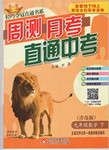题目内容
【题目】 Lin Hanxing is a 30-year-old who lives in Beijing. She owns just five shirts, two pairs of pants, four pairs of shoes and a few other things. It's hard to believe that only five years ago, Lin was one of those people who couldn't stop buying stuff. Back then, she had more than 400 pieces of clothing and handbags

But that was before she saw an online challenge in 2014, introduced by Joshua Becker, a blogger in the United States who was promoting(推广) a minimalist lifestyle(极简生活方式). He encouraged people to reduce the number of their belongings to fewer than 100. Lin wasn’t strongly against it, so she got rid of 90 percent of her stuff. She also deleted(删除) 120 contacts she never spoke to from her social networking account. After doing all that, Lin said she felt “lighter”.
We used to think owning more was the way to lead a rich life. But now many people tend to believe that the opposite is also true--and perhaps truer.
According to US sociologist Joel Stillerman, people who are educated and well-off are more likely to have a minimalist lifestyle. “These people are making the statement: ‘I can afford to have less.’,”he said.
But leading a minimalist lifestyle doesn't mean spending less. A report by UK market research company Euromonitor found young Chinese people spend less on possessions, but more on short holidays and visits to the movies.
“They are looking for a life that is all about culture,” Alison Angus, head of lifestyles at Euromonitor, said about Chinese youth.
So perhaps it all comes down to how we define(定义) “rich”. Is wealth in life about buying more and owning more, or is it about having a more colorful life?
【1】The author mentioned the change of Lin Hanxing to _______.
A.introduce the minimalist lifestyle
B.encourage us readers to buy less
C.explain the popularity of owning less
D.explain the importance of a new lifestyle
【2】What’s Lin Hanxing’s attitude towards the online challenge in the beginning?
A.She was very fond of it.
B.She thought it worth a try.
C.She was strongly against it.
D.She thought it must be painful.
【3】According to the passage, young Chinese people care more about _______.
A.possessionsB.culture
C.educationD.clothes
【4】If one is rich, he is more likely to _______.
A.spend lessB.buy more
C.own lessD.experience more
【答案】
【1】A
【2】B
【3】B
【4】D
【解析】
本文是议论文。现在社会提倡极简生活方式。文章提出观点:富有的生活并不是买得多拥有得多,而应该是丰富多彩的生活。
【1】
推理判断题。根据第一段中“She owns just five shirts, two pairs of pants, four pairs of shoes and a few other things. ”可知,她现在的生活很简单。作者提到林寒星的变化是为了引出下文关于极简生活方式的话题。故选A 项。
【2】
推理判断题。根据第二段中“Lin wasn’t strongly against it, so she got rid of 90 percent of her stuff. She also deleted(删除) 120 contacts she never spoke to from her social networking account.(林并不强烈反对,所以她扔掉了90%的东西。她还从社交网络账户上删除了120位从来没有交谈过的联系人。)可以推断,林并不反对这样的线上挑战,觉得值得一试,并且还去做了。故选B项。
【3】
细节理解题。第五段中提到“young Chinese people spend less on possessions, but more on short holidays and visits to the movies.( 中国年轻人在私人物品上的花费更少,但在短假期和看电影上的花费更多。)”;根据第六段中Alison Angus的观点“They are looking for a life that is all about culture”可知,Alison Angus认为中国年轻人更关注的是生活中的文化品质。故选B项。
【4】
推理判断题。根据文章最后一段中提出引起人们思考的问题“Is wealth in life about buying more and owning more, or is it about having a more colorful life?(富有的生活是指购买和拥有更多,还是指拥有更丰富多彩的生活?)”以及文章第三段中“We used to think owning more was the way to lead a rich life. But now many people tend to believe that the opposite is also true(我们曾经认为拥有更多是过上富裕生活的方式。但现在许多人倾向于认为,相反的情况也是正确的。)可以推断,文章提出的观点:生活的富有是指生活的丰富多彩。生活富有的人们会更多地去体验生活的丰富多彩。故选D项。

 轻巧夺冠周测月考直通中考系列答案
轻巧夺冠周测月考直通中考系列答案

